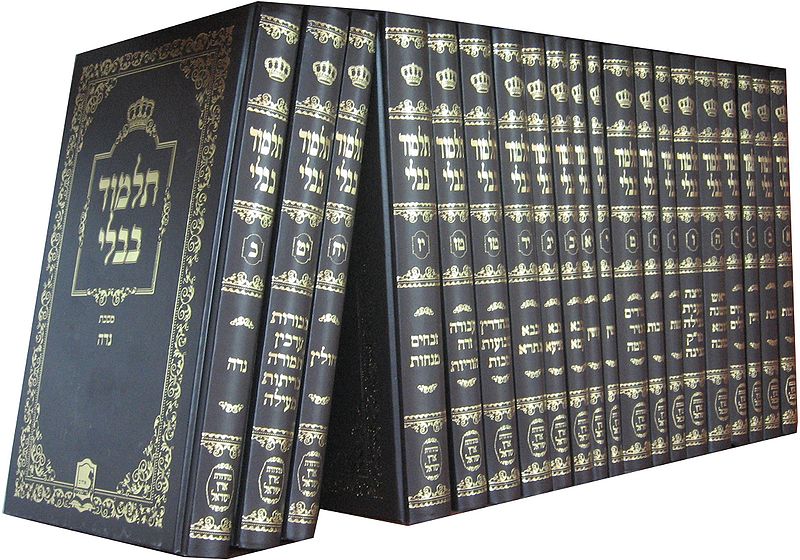(To dedicate a future Table Talk, send an email.)

I’ll never forget my first encounter with the Talmud.
I had been wandering around the Old City of Jerusalem with my backpack and someone who looked like a rabbi asked me if I needed help finding wherever I was going. I was looking for a place that some Jews I had met in Paris told me about. They called the Such-and-Such Yeshiva. There, they promised me, you can learn the Talmud in English.
“The Yeshiva? You’re here!”
Where I was standing didn’t look anything like a yeshiva, in fact I was in the middle of the street. “All these buildings around you are the yeshiva. By the way, it’s Friday afternoon, do you have plans for Shabbos?”
I didn’t.
The next thing I knew, I was in the back seat of an old white Citroën headed out to the Judean Hills as the sun descended towards the Mediterranean.
My host, I’ll call him Shlomo, it turns out was something of a renaissance man. A wiry, slender man with a long, thin graying beard, he was a combination Talmudic scholar, fix-it-man and guru on organic foods and herbs.
The community was not wealthy. They lived very simply, even by Israeli standards. But they seemed very happy on their bluff with a view of the Dead Sea. It turns out that I happened to arrive for a very special Shabbat, when “the rebbe” was visiting. This was not the famous Lubavitcher rebbe, he was the community rabbi, who was the most angelic person I’d ever met, with the sweetest, softest smile framed by a lush black beard. Friday night during the song “lecha dodi” song, he got everyone dancing outside. It was a divine, timeless moment.
Sunday morning, still radiating the afterglow of that Shabbat, I met Shlomo back at the yeshiva for my introduction to the Talmud.
He unlocked the door to an old building that had arched ceilings and almost no artificial light. Most of the light streamed in through high windows. The small room was lined with unsteady-looking bookshelves, jammed full of ancient Hebrew books of all sizes.
Shlomo pulled a massive volume from a bottom shelf, larger and heavier than any book I’d ever held, and put it in my hands. “Why don’t you put this over there,” he gestured to a reading table. He disappeared and reappeared with two dictionaries, one Hebrew-English and the other Aramaic-English.
For the next three hours Shlomo had me read (without vowels) and look up every word in the first half of the first page, going over it again and again until I could read it on my own. It was like weeding a dandelion field - every step was slow and deliberate. I felt like a baby trying to become a toddler. But Shlomo seemed to have infinite patience for my baby steps and I was determined to figure out this puzzle, which had to do with two people fighting over a object that they both claimed to have found first.
Finally, after this grueling effort at mastering that first section, Shlomo put his hand on the page and looked me in the eye. “Do you know why we learn Torah?”
“That’s a really good question,” I was thinking, “Um, shouldn’t we have discussed this before?” But my actual reply was, “Isn’t it supposed to teach us how to live?”
“Not necessarily. We could learn how to live in other ways. Many people around the world learn how to live without the Torah. We could learn how to live from the animals – from dogs how to be loyal, from beavers how to be industrious...” That image reminded me of King Arthur, who according to legend did exactly that.
The point was, he had a point, and I didn’t have a clue.
“So what’s the reason?”
“The Torah,” he intoned slowly, “Is to teach us how to be holy.”
“Oh....” My voice and thoughts trailed off.
I looked down at the gigantic page of ancient text in front of me. The paper was faded. The corners were worn as if they had been touched by a thousand hands. The air was cool, and in the shaft of sunlight streaming down from behind the bookcase, a fly buzzed.
I wasn’t sure what “holy” meant, or what it had to do with the property dispute that I had been sweating for three hours to decipher. But something told me it might have something to do with that Shabbat “experience”.
Shabbat Shalom
Travel/speaking schedule:
June 17 – Chicago - “A New Twist on the Old Game of Love” (downtown business lunch)
June 18 - Los Angeles – “How Frustrations are the Key to Successful Dating” (for singles)
June 24 – Los Angeles - “Jewish Secrets to a Spicy Marriage” (for married men)
June 25 – Los Angeles - “How to help our children get married without interfering (too much)” (for parents)
For details, send an email!
No comments:
Post a Comment